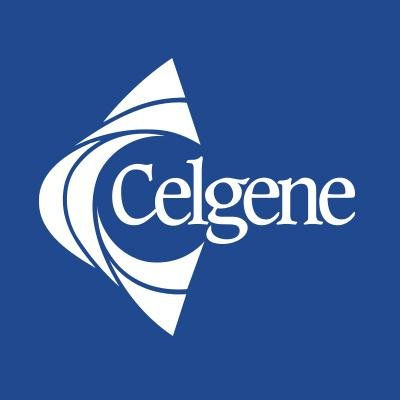预约演示
更新于:2025-12-07

2seventy Bio, Inc.
更新于:2025-12-07
概览
标签
肿瘤
血液及淋巴系统疾病
其他疾病
自体CAR-T
CAR-T
TCR-T细胞疗法
疾病领域得分
一眼洞穿机构专注的疾病领域
暂无数据
技术平台
公司药物应用最多的技术
暂无数据
靶点
公司最常开发的靶点
暂无数据
| 排名前五的药物类型 | 数量 |
|---|---|
| 自体CAR-T | 2 |
| CAR-T | 2 |
| TCR-T细胞疗法 | 1 |
| 基因编辑 | 1 |
| 排名前五的靶点 | 数量 |
|---|---|
| F8(凝血因子VIII) | 1 |
| MAGEA4(黑色素瘤相关抗原4) | 1 |
| CD33 x CLL-1 | 1 |
| BCMA(B细胞成熟蛋白) | 1 |
关联
6
项与 2seventy Bio, Inc. 相关的药物靶点 |
作用机制 BCMA抑制剂 |
非在研适应症 |
最高研发阶段批准上市 |
首次获批国家/地区 美国 |
首次获批日期2021-03-03 |
靶点- |
作用机制- |
在研适应症 |
非在研适应症- |
最高研发阶段临床前 |
首次获批国家/地区- |
首次获批日期- |
靶点 |
作用机制 F8调节剂 |
在研适应症 |
非在研适应症- |
最高研发阶段临床前 |
首次获批国家/地区- |
首次获批日期- |
2
项与 2seventy Bio, Inc. 相关的临床试验NCT06045806
A Randomized, Open-Label, Phase 3 Trial to Compare the Efficacy and Safety of Idecabtagene Vicleucel With Lenalidomide Maintenance Versus Lenalidomide Maintenance Therapy Alone in Adult Participants With Newly Diagnosed Multiple Myeloma Who Have Suboptimal Response After Autologous Stem Cell Transplantation (KarMMa-9)
The purpose of this study is to compare the efficacy, safety, and tolerability of ide-cel with lenalidomide (LEN) maintenance to that of LEN maintenance alone in adult participants with Newly Diagnosed Multiple Myeloma (NDMM) who have achieved a suboptimal response post autologous stem cell transplantation (ASCT).
开始日期2023-10-16 |
申办/合作机构  Celgene Corp. Celgene Corp. [+2] |
NCT03274219
A Phase 1 Study of bb21217, an Anti-BCMA CAR T Cell Drug Product, in Relapsed and/or Refractory Multiple Myeloma
Study CRB-402 is a 2-part, non-randomized, open label, multi-site Phase 1 study of bb21217 in adults with relapsed/refractory multiple myeloma (MM).
开始日期2017-08-16 |
申办/合作机构 |
100 项与 2seventy Bio, Inc. 相关的临床结果
登录后查看更多信息
0 项与 2seventy Bio, Inc. 相关的专利(医药)
登录后查看更多信息
243
项与 2seventy Bio, Inc. 相关的新闻(医药)2025-11-05
·同写意
中国细胞与基因治疗大会第五届年会将于2025年11月20日至22日在海南省海口市隆重举行,敬请期待!
2024年对于TCE是具有里程碑意义的一年:CD3/DLL3(Tarlatamab)治疗SCLC实现突破并获FDA批准上市;CD3/CD19(Blinatumomab)及CD3/BCMA(Teclistamab)治疗多种自免疾病取得早期临床验证;多家MNC、NewCo引进中国TCE用于治疗自免疾病。
2025年对于CAR-T(特别是体内CAR-T)也是极具里程碑意义的一年:4家体内CAR-T Biotech EsoBiotec、Capstan、Interius、Orbital先后被MNC收购;诺和诺德、武田、Galapagos先后宣布关闭细胞治疗部门;阿斯利康终止2款治疗实体瘤的自体CAR-T的临床开发;再生元终止其从2seventy bio引进的CD79a/CD20双靶CAR-T(bbT369)的临床1/2期研究。
2025年,CAR-T领域出现了一半海水一半火焰的截然不同的画面:一方面是体内CAR-T赛道炙手可热,吸引了众多MNC、投资人、Biotech躬身入局,另一方面是传统自体CAR-T面临着来自TCE、ADC、体内CAR-T等的巨大挑战,显得力不从心。
从自体CAR-T到通用型CAR-T再到体内CAR-T,CAR-T的迭代升级速度超过了大多数企业的研发速度。MNC凭借其雄厚的财力可以通过"买买买"并购或引进实现技术及产品的迭代更新。那么中国Biotech该如何应对?毫无疑问,加速转型、拥抱新技术、横向合作既是生存之道也是成功之道。
于是,在这一轮体内CAR-T热潮中,仅在中国就涌现出超过200家布局体内CAR-T的药企,这样的“盛况”颇似当年的PD-1及ADC。
但历史经验提醒我们,如此拥挤的赛道,最终能跑出来的企业只会是少数,大部分企业将扮演陪跑的角色。
那么什么样的企业能取得最后的成功?
TONACEA
01
传统CAR-T企业
传统CAR-T企业转型体内CAR-T赛道具有先天的优势,他们在CAR的设计、优化、体外体内筛选、临床开发等关键步骤积累了丰富经验。
然而,传统CAR-T企业往往基于慢病毒体外转染T细胞获得CAR-T,在CMC人员、设备上围绕慢病毒已作出相当投入。因此,他们往往会倾向研发基于慢病毒技术路线的体内CAR-T,以使其慢病毒相关人员及设备得以继续发挥作用。
而针对慢病毒载体VSV-G的工程化优化以破坏其广谱受体结合位点但保留膜融合功能的专利空间已非常有限,使用其它类似的病毒糖蛋白进行替代的尝试已在Umoja、易慕峰等公司展开。
而有一些传统CAR-T企业早已布局了基因编辑用以取代慢病毒转染T细胞。近日,普瑞金生物宣布与吉利德旗下的Kite Pharma就体内原位编辑疗法领域达成合作,获得总计1.20亿美元的首付款、总计最高可达15.20亿美元的各项里程碑现金付款,用以开发体内CAR-T产品。
TONACEA
02
mRNA疫苗企业
mRNA-LNP是体内CAR-T的两大技术路径之一,因此本轮体内CAR-T热潮吸引了包括云顶新耀、艾博等众多mRNA疫苗企业加入。
与慢病毒相比,mRNA-LNP体内CAR-T的研发历史较短,很多组成元件及工艺技术路径仍有待优化。mRNA的设计已进入AI时代,以获得具有更高转染及表达效率的mRNA,而LNP的设计与优化更近似于小分子。
此外,用于体内CAR-T的LNP需要具备T细胞的靶向性并降低肝脏靶向性,其复杂程度远高于用于mRNA疫苗的LNP,因此mRNA疫苗企业在体内CAR-T赛道优势有限。
TONACEA
03
ADC企业
体内CAR-T的热潮甚至还吸引了ADC企业,如百利天恒、映恩的兴趣。ADC赛道的内卷已导致行业一片红海,即使是头部企业也不得不思考未来潜在的突破口。
而mRNA-LNP体内CAR-T,从一定意义上来讲,可以看作是一种ADC药物,当然其复杂程度远超经典的ADC药物。因此,ADC企业在体内CAR-T赛道的优势有限。
综上所述,体内CAR-T技术很可能成为终结传统自体CAR-T技术的一种颠覆性技术,它的出现以及进一步发展将使那些传统CAR-T企业除了转型外无路可走,也将在可预见的未来在临床上挑战TCE。
多家MNC已通过并购或引进的方式“跑步入场”体内CAR-T,通过内部资源整合、外部技术合作而更有可能研发出BIC产品。中国药企如何在激烈的竞争中胜出?充分的横向合作、局部的技术突破可能是关键。
细胞疗法免疫疗法抗体药物偶联物并购引进/卖出
2025-11-03
谁说Biotech让大药企掏钱必须卖自家管线?一种很新的Biotech和大药企之间的交易合作方式已经出现。
10月30日,药明巨诺与再生元Regeneron签署战略合作补充协议:再生元为药明巨诺的MAGE-A4靶点产品相关特定开发活动提供资金,再生元获得药明巨诺自研的药品生产工艺的全球非独家许可,并获得药明巨诺自研的慢病毒载体制造工艺的选择权,药明巨诺将获得最高可达5000万美金的付款,涵盖首付款、产品开发里程碑付款、药品生产流程监管里程碑付款等一系列款项。
值得注意的是,此次涉及的MAGE-A4靶点产品(JWTCR001)是一款TCR-T疗法,由药明巨诺2022年下半年从2seventy bio(后续被再生元收购)引进,此次合作药明巨诺仍保留了大中华区开发及商业化该产品的权益,它并非是一次管线回收的交易。
尽管JWTCR001是引进的管线,但过往中国Biotech的交易历史来看,从未有过在同一个资产下引进方技术反哺授权方并获得技术授权付款的先河,药明巨诺和再生元这一创新式合作补充显然有很多价值挖掘点。
01
创新交易先河
从国内Biotech过往合作交易历史上,与海外药企达成合作无非几种,包括买卖管线权益、技术平台使用授权、药物特许权折现。
药明巨诺与再生元的合作并不完全属于上述任何一种,该合作款项由“产品开发款项+技术授权费用+选择权费用”组成,一是“再生元为药明巨诺特定开发活动提供资金”和存在产品里程碑开发付款,这更像是一种再生元资助和推动药明巨诺在国内开发这款引进管线,毕竟从药明巨诺自身的管线优先级来说这款管线并不算靠前;二是药明巨诺将自研的生产工艺非独家授权给再生元以及再加一个慢病毒载体制造工艺的技术授权选择权,过往国内Biotech大多数技术授权集中在新型分子发现的技术平台使用权,而这种药品和载体生产工艺授权是CGT Biotech独有的,在过往的交易合作中并不多见。
就合作方式而言,药明巨诺和再生元这项合作开创了一个全新的合作先河,药明巨诺在没有授权出管线权益的背景下,仅通过工艺授权和加速原本自有的管线开发就获得了海外药企高额的付款,在国内Biotech对外合作的历史添上了浓墨重彩的一笔。
当然,这项合作对于药明巨诺意义是重大的。
一方面,从自研生产工艺技术、病毒载体生产“全球非独家”授权角度,公司展现了可以通过自研在细胞治疗领域先进的药品生产工艺和独特的载体生产技术平台进行对外授权,获得持续正向的现金流;另一方面,这笔合作极大补充了药明巨诺的现金储备。
那么再生元的意图是什么呢?
2024年初再生元收购2seventy bio全部在研管线并新成立Regeneron Cell Medicines部门,能看出其意图在细胞领域大展拳脚,另外也在积极布局基因编辑技术(如与Mammoth Biosciences的合作),补齐各种短板,而这次获得药明巨诺的生产工艺技术授权相信也是补齐其细胞治疗全链条能力的一环。
从2seventy bio收购来的管线进展来看,最快的双靶点CAR-T疗法bbT369已经中止开发,目前进度最快的是CAR-T疗法SC-DARIC33,两款IND阶段细胞疗法MUC16 CAR-T 和MAGE-A4 TCR-T,其余为临床前管线。
由于再生元海外并未推动MAGE-A4 TCR-T的临床入组,而选择花钱让药明巨诺去加速国内临床,一是认可国内Biotech患者招募和临床推进的高效率和低成本,二是想让药明巨诺在国内做出一定人体数据后看到初步的疗效和安全性,再决定是否要启动海外临床,属于“花小钱办大事”。
不过药物巨诺在合作中同样是赢家,海外合作伙伴愿意出资帮自己加速管线临床,另外若做出优异数据,未来不排除将国内权益以较高价格卖回给再生元,以价值最大化。
02
MAGE-A4靶点TCR-T有何魅力?
黑色素相关抗原A4(MAGE-A4)确实是一种肿瘤治疗潜力靶点,它不仅与发生、发展、转移及预后密切相关,并且广泛表达于滑膜肉瘤、粘液样/圆形细胞脂肪肉瘤、非小细胞肺癌 、头颈鳞癌以及卵巢癌、尿路上皮癌、黑色素瘤和胃食管癌等多种实体瘤组织,但在正常组织中低表达。
目前MAGE-A4 TCR-T路径已经验证了成药性,2024年8月Adaptimmune公司的Tecelra获得FDA批准用于治疗晚期滑膜肉瘤,值得注意的是这款药物是基于滑膜肉瘤中出色的疗效提前获得FDA加速批准。
Tecelra的SPEARHEAD-1研究显示其在44例晚期滑膜肉瘤中ORR为43%,CR率为4.5%,mDOR达到6个月(在39%的应答者中DOR≥12个月),mPFS为3.8个月,mOS为15.4个月。要知道,既往≥2线治疗的滑膜肉瘤历史人群中,mOS显著小于12个月,这展现了Tecelra作为MAGE-A4 TCR-T带来的强劲生存获益。
不过作为第一代MAGE-A4 TCR-T,Tecelra也存在不足,在滑膜肉瘤、黑色素瘤、肺癌等多种实体瘤中,TGF-β表达水平高(肿瘤微环境中的免疫抑制),导致疗效受限(临床前数据显示:Tecelra在TGF-β高表达模型中细胞毒性显著下降)。
药明巨诺/再生元JWTCR001是比Tecelra更强的下一代TCR-T,其通过独特CTBR12翻转受体策略进行T细胞工程化改造,有望解决Tecelra存在的问题。
这种策略保留了TGF-β受体的胞外结构域,保证了仍能与肿瘤微环境中高浓度的TGF-β结合;另外将促炎信号结构域(如CD28或细胞因子受体相关结构域,特别是IL-2/IL-15受体部分)取代了原有TGF-β受体的细胞内信号结构域。该策略的好处在于:当TGF-β与CTBR12结合后,将抑制性通路转化为触发T细胞激活信号(显著增强肿瘤细胞裂解能力),有望解决TGF-β驱动的肿瘤微环境的抑制,进一步提升了TCR-T广谱实体瘤治疗的可能。
临床前研究显示,CTBR12翻转受体策略下的工程化TCR在体内的效力至少是Tecelra TCR的五倍。另外,采用黑色素瘤和非小细胞肺癌肿瘤模型进行肿瘤消除的测试,这种策略下的MAGE-A4 TCR-T已经显示出增强肿瘤细胞裂解,未来有望转化为优异临床结果。
Tecelra成药在前,以及JWTCR001迭代技术展现出的潜力,从而我们不难理解再生元为什么愿意花一笔不菲的费用让药明巨诺在国内加速临床,JWTCR001背后蕴含的潜力是巨大的。
03
新浪潮抓手:载体工艺和生产工艺
回归这项合作本质,其实最容易被忽略的是递送载体的技术工艺选择权,而恰恰这个领域是当下细胞治疗赛道的决定性技术。
递送载体在细胞治疗领域的作用毋庸置疑,其需要具备核心作用和特性包括:1)保证细胞/基因编辑工具安全到达目标位置;2)将活性单元在病灶中精准投放;3)保证释放可控性且具备较高的安全性;4)可规模化+可质控的载体工艺;
以时下火热的Invivo CAR-T为例,MNC基于载体技术平台的合作和收购更是趋于野火燎原之势,比如2025年3月阿斯利康收购的EsoBiotec,其ENaBL平台通过对慢病毒进行工程化改造,使其能更精准地靶向体内的T细胞;再如吉利德收购的Interius,其技术平台特点为可模块化架构,其慢病毒载体的关键功能可分解为三个可独立优化和更换的部件。
可见,慢病毒载体能将CAR基因永久整合到T细胞的基因组中,使CAR蛋白获得长期、稳定的表达,有望实现单次治疗实现持久疗效,这些优势正愈受MNC的青睐。但慢病毒生产工艺难度是细胞治疗全行业的重要痛点,强生/传奇生物的Carvykti曾因慢病毒载体短缺的问题,过去两年一直未能实现超预期的销售放量。
除了此次与再生元的合作外,药明巨诺在过去一年里展现了丰富的自研慢病毒技术储备:
2025年4月公司BMS签署一项技术许可协议,公司将JW sLVV生产工艺的非独家许可授予BMS,总价值不超过1000万美元,BMS可用该项技术开发、商业化、制造相关细胞治疗产品。半年内相继获得BMS、再生元合作背书,并且均为非独家技术许可,这意味着公司未来可以与更多的CGT Biotech或者中大型药企进行技术合作,获得源源不断的现金流收入;
2025年10月NMPA已正式受理药明巨诺的CD19 CAR-T倍诺达新增使用国产病毒载体的上市后补充申请,本次替换的国产载体是药明巨诺自主研发生产的慢病毒载体JWLV011,该载体不仅较现有进口慢病毒载体具有临床可比性,同时能够显著降低生产成本。
据药明巨诺公开口径,目前倍诺达生产制造成本在50万左右,预计新病毒载体有望在2026H1替换完成,一旦替换完成,现有产品的成本会大幅下降至30万左右,这将极大优化公司的财务模型,并且产品成本下降将推动自体CAR-T商业化放量。
不难看出,药明巨诺自主开发的慢病毒载体技术将大幅变革现有病毒载体CAR-T的制造成本,对于一些已有商业化细胞产品和计划进军细胞治疗领域的海外药企而言,这种技术有强大的吸引力(凭空提升双位数百分比的现有产品利润),这也是为什么BMS、再生元愿意向药明巨诺支付大额技术授权费用的重要原因。
除了近来在慢病毒递送载体技术上大放异彩外,药明巨诺正在全线推进新一代的细胞治疗产品,倍诺达在系统性红斑狼疮(SLE)的初步临床数据上最高剂量组展现出100%的SRI-4应答率,在该项数据上优于现有的全部治疗手段;以及自主开发新一代CD19/CD20双靶CAR-T产品JWCAR239也将在2025 ASH公开最新数据,而前述提到的MAGE-A4 TCR-T产品JWTCR001也处于计量爬坡阶段(最快2026年中公布数据),公司也提到在Invivo CAR-T领域有着丰富的布局和技术储备。
结语:药明巨诺与再生元的合作向全市场展现了一种开创先河的全新合作模式,其中值得向中国Biotech借鉴学习的是,获得技术付款并不一定要出售管线权益,也可以通过过硬的平台技术和高效的生产工艺流程来为药品商业化成本管控赋能,从而获得MNC巨头的青睐。
相信药明巨诺与再生元这种创新模式合作,绝对不会是最后一次。
共建Biomedical创新生态圈!
如何加入BiG会员?
细胞疗法并购免疫疗法
2025-11-01
近日,再生元基于“战略性商业决策”,放弃了一款CAR-T资产。
根据clinicaltrials.gov网站显示,再生元已经终止了这款CD79a/CD20双靶点CAR-T候选药物bbT369的临床研究,并在一封声明中表示没有计划对bbT369的进一步开发。
图片来源:参考资料2
bbT369终止
bbT369是一款自体CAR-T细胞治疗,通过慢病毒(LVV)转导T细胞表达抗CD79a和抗CD20的CAR,并通过megaTAL™基因工程技术平台敲除CBLB基因。AACR 2022年会上,bbT369的临床前数据显示具有有前景的抗淋巴瘤活性。
值得注意的是,bbT369是再生元于2023年1月以500万美元的预付款从2seventy bio公司买下的一系列管线之一。2seventy bio则是从蓝鸟(bluebird)分拆出来的一家专注于细胞治疗的生物技术公司。
延伸阅读:将仅靠BCMA-CAR-T活着的Biotech
目前,bbT369的首个1/2期人体临床研究CRC-403已经在1期终止,没有参与者参加2期。
clinicaltrials.gov网站显示的终止原因是“Sponsor Decision”。根据外媒Fiercebiotech报道,再生元停止该研究是“战略商业决策”。
尽管放弃了一款临床阶段的CAR-T细胞治疗,但是再生元表示这并不会对公司的细胞治疗战略产生任何更广泛的影响。
实际上,再生元的细胞治疗管线主要是通过收购2seventy bio的资产(包括已经终止的bbT369,以及CD33 CAR-T疗法SC-DARIC33、MUC16 CAR-T细胞27T51、MAGE-A4 TCR)获得,但再生元在研管线内仅显示一款处于临床1期的卵巢癌项目MUC16 CAR-T细胞27T51。
小结
再生元终止一款CAR-T开发的决定,发生在最近多家公司宣布剥离/放弃细胞治疗后,给细胞治疗的开发环境带来了更多的不确定性。
出售细胞疗法失败,公司全球裁员,上海工厂遭到波及
诺和诺德裁撤所有细胞治疗管线
参考资料:
1.https://www.fiercebiotech.com/biotech/regeneron-abandons-2seventybio-car-t-midway-through-phase-12-lymphoma-trial
2.https://clinicaltrials.gov/study/NCT05169489?term=bbT369&rank=1
·
·
·
·
·
·
·
·
细胞疗法免疫疗法AACR会议并购临床1期
100 项与 2seventy Bio, Inc. 相关的药物交易
登录后查看更多信息
100 项与 2seventy Bio, Inc. 相关的转化医学
登录后查看更多信息
组织架构
使用我们的机构树数据加速您的研究。
登录
或

管线布局
2026年03月01日管线快照
管线布局中药物为当前组织机构及其子机构作为药物机构进行统计,早期临床1期并入临床1期,临床1/2期并入临床2期,临床2/3期并入临床3期
药物发现
1
4
临床前
临床3期
1
1
其他
登录后查看更多信息
当前项目
| 药物(靶点) | 适应症 | 全球最高研发状态 |
|---|---|---|
艾基维仑赛 ( BCMA ) | 复发性多发性骨髓瘤 更多 | 临床3期 |
27T32 ( CD33 x CLL-1 ) | 急性髓性白血病 更多 | 临床前 |
MAGE-A4 ( MAGEA4 ) | 实体瘤 更多 | 临床前 |
bbT-4015 | 卵巢癌 更多 | 临床前 |
Hemophilia A(2Seventy Bio) ( F8 ) | 血友病A 更多 | 临床前 |
登录后查看更多信息
药物交易
使用我们的药物交易数据加速您的研究。
登录
或

转化医学
使用我们的转化医学数据加速您的研究。
登录
或

营收
使用 Synapse 探索超过 36 万个组织的财务状况。
登录
或

科研基金(NIH)
访问超过 200 万项资助和基金信息,以提升您的研究之旅。
登录
或

投资
深入了解从初创企业到成熟企业的最新公司投资动态。
登录
或

融资
发掘融资趋势以验证和推进您的投资机会。
登录
或

生物医药百科问答
全新生物医药AI Agent 覆盖科研全链路,让突破性发现快人一步
立即开始免费试用!
智慧芽新药情报库是智慧芽专为生命科学人士构建的基于AI的创新药情报平台,助您全方位提升您的研发与决策效率。
立即开始数据试用!
智慧芽新药库数据也通过智慧芽数据服务平台,以API或者数据包形式对外开放,助您更加充分利用智慧芽新药情报信息。
生物序列数据库
生物药研发创新
免费使用
化学结构数据库
小分子化药研发创新
免费使用
